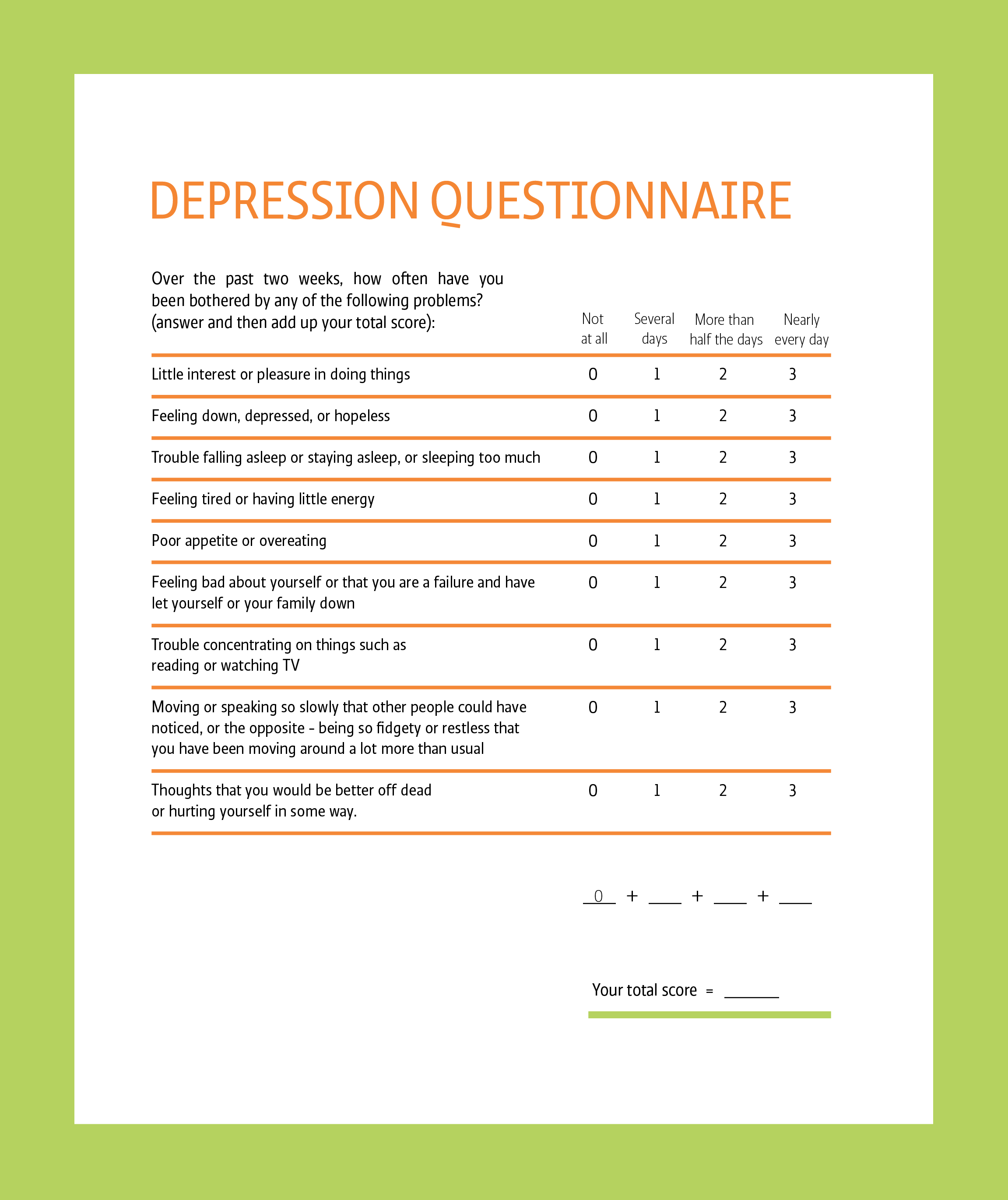1. Depression - Depression Questionnaire
Topic Index
Depression Questionnaire
How is Depression affecting your life? Doctors use this test, called the PHQ-9, to better understand their patients’ depression levels. After answering the questions, you can score your results in the article below. Show a copy of the completed quiz to your doctor or mental health professional. He or she can learn even more from your answers, and help you get the treatment you need.

Scoring Your Results
The PHQ-9 says a lot. More than you’d think for nine short questions. Some of the details are probably more useful for your doctor or psychiatrist, but the basic scoring is simple. After you read up, be sure to bring your full questionnaire to your doctor or therapist. He or she will look at your answers individually and make a treatment plan.
Before you start:
If you scored anything higher than a zero on the final question, you need to talk to someone you trust as soon as you can. Keeping you safe is priority one. If you aren’t sure who to talk to, skip to the resources section for ideas. Or, to speak with someone right now, call the national suicide prevention lifeline: 1-800-273-TALK (8255) or chat online at www.suicidepreventionlifeline.org.
0-4 – Minimal or no depression
Good news! Your depression level is low. This doesn’t mean you’ve never had depression before, or that you can’t benefit from the tips in this booklet. It does mean that depression is probably not a major disruption to your life right now. If you have concerns or aren’t sure this is right, you should still talk to your doctor or someone you trust.
5-9 – Mild depression
Your depression may not be as severe as some people have experienced right now, but it’s real, and it hurts. We see you. Check with your doctor for a medical work-up, if you haven’t had one yet, find a safe person to talk to (see the resources), and keep reading this booklet for more steps you can take.
10-14 – Moderate Depression
Depression is weighing you down, and we’re so sorry. At this level, it’s a good idea to get some treatment advice from a doctor and perhaps a therapist, in addition to the steps you can take on your own. The resource section has a few tips for finding people who can help. This booklet, and the others in the series, have suggestions that can help you heal. Of course, they’ll be most helpful when combined with medical advice.
15-19 – Moderately Severe Depression
A lot of your energy is getting sucked away by depression right now, and we just want to say we’re proud of you for keeping on with your life. It’s not easy. But it can and will get better. Look at our tips for moderate depression, and keep in mind that, for a PHQ-9 score this high, your doctor will probably suggest counseling and maybe medication, depending on your needs and what works for you. Don’t give up.
20-27 – Severe Depression
Every morning you wake up, and depression is there. It wants to get you down. It wants you to think there’s no point in trying. But here you are, reading this booklet, looking for the light, even though you’re exhausted from dragging yourself through the day with depression’s lead weight on your back. We see you, and you’re a hero.
Our tips for moderate and moderately severe depression might help, and try to see a doctor as soon as you can. Celebrate every step toward healing. You’re making progress through the fog, and we’re proud of you.
